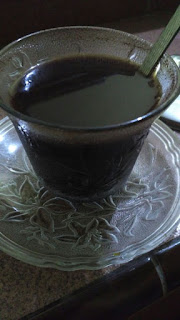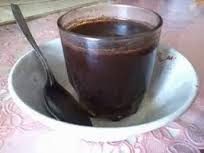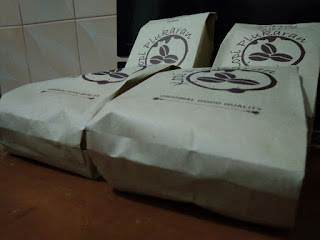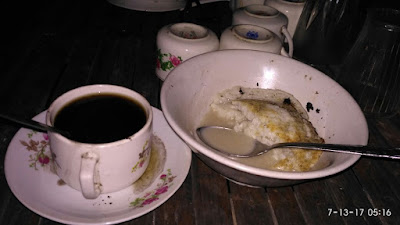Lasem Coffee, Coffee "Lelet" Rembang With "Nyete" Tradition
In Indonesia many volcanoes so that Indonesia produces many good coffee, including coffee Java, Sumatra, Toraja. All three are robusta coffee and have almost the same shape. Arabica coffee is preferred abroad. Arabica coffee produces more acid, has cream and foam produced when coffee boils over robusta coffee. Coffee Indonesia became the most favorite coffee after Hawai and Jamaica.
Coffee is not just a drink. Coffee has an unexplainable effect on people who do not like coffee. Culture drink coffee is already become a habit of Southeast Asia, especially in Indonesia. Drinking coffee becomes one of the ways of relaxation people after tired of struggling with daily activities. In addition “nyruput” a coffee, people can meet each other and chat with others.
The culture of coffee in Rembang comes from “mblandong” (looking for wood in the forest). Working fatigue makes the community has a culture of nap, coffee, and people's party (after harvest). Each region has its own coffee and presentation. Rembang itself is not a coffee bean producer.
Lasem Coffee is better known as “Lelet” Rembang coffee is one of the various types of coffee in addition to coffee Colo, Coffee Plukar, Coffee Jollong, Coffee Gunem, Gayo Coffee, Toraja Coffee, Kopi Luwak and other coffee. Perhaps many people are still strange with Lasem coffee or “Lelet” coffee. But for people who live around Rembang, Lasem coffee or “Lelet” coffee is not foreign.
Lasem coffee or “Lelet” coffee is made from ground coffee beans with machine selep & sieved as much as eight times in order to obtain smooth spheres like flour. Lasem coffee or “Lelet” coffee is a black coffee with a fairly strong acid impression. At first glance there is no difference with other types of coffee, the difference lies in the density of coffee dough, the taste is strong, soft spheres buliran in Lasem coffee or “Lelet” coffee and how to enjoy it.
How to serve on Lasem coffee or “Lelet” coffee is also known as a different coffee with the way of serving coffee drinks in general. First coffee and sugar are put in a pan and then poured hot water into it. The dough is still to be re-cooked after a completely boiling coffee new is served.
Another uniqueness of drinking Lasem coffee is "nyete" which is typical Lasem habits that combine 3 things, namely coffee, cigarettes and batik: batik on cigarettes using coffee grounds. Not hard to buy Lasem powder coffee. Many stalls provide it. In fact, one of the coffee shops in Lasem, already preparing coffee powder with various packaging to be enjoyed by people who are outside Rembang and miss with Lasem coffee. In the streets many coffee shops are found. Especially in the Lasem District, which is where the first Coffee Birth Born.
Lasem Coffee, Coffee "Lelet" Rembang With "Nyete" Tradition
Lasem coffee is also called Coffee “Lelet”. The emergence of coffee term lelet itself because after coffee is drunk, the rest of this coffee pulp which is then applied (Javanese: dilelet) in cigarettes. Surely not directly smeared.
First of all, the rest of the coffee grounds are poured in a saucer (small plate), then the remaining water is dried with a tissue. Once dry, then added a little creamer.
This cream functions as a glue while giving a scent. This mixture of coffee and cream dregs is then applied to cigarettes with the help of yarn, spoon, or matchstick with slightly sharpened edges.
Certainly need practice and perseverance because coffee grounds are inscribed in cigarettes to form beautiful motifs as complicated as making batik motifs also produce unique artwork in accordance with taste and how to polish it. If it is a bit dry coffee dregs attached to cigarettes, the cigarette was ready at enjoy . It seems like a fad aja, but that's the name of tradition, started from a small and simple, then become a tradition that many people do.
For in Rembang itself, Coffee “Lelet” with the tradition of "nyete" has become one of the identity and tradition and of course remains the identity of the simple Rembang people. Read more, may you want to know about The Philosophical Meaning Of Coffee In Javanese View Of Life.







